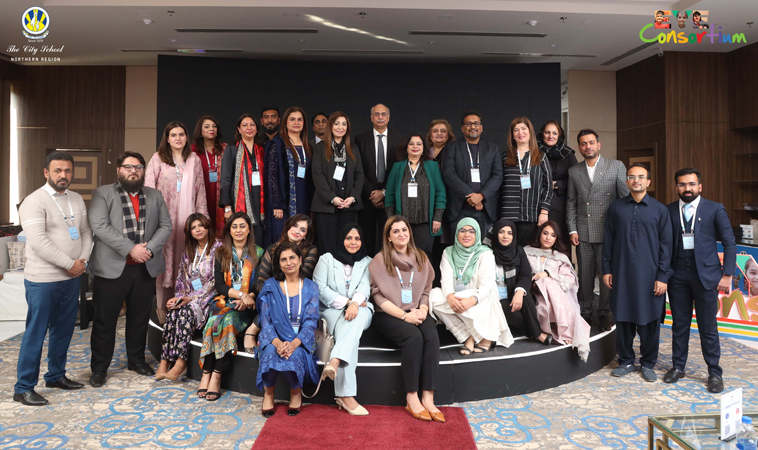 The City School’s Early Years Consortium 2024 convened on February 24th in Islamabad, under the directive of Dr. Farzana Firoz, Group Chairperson. The event brought together a diverse array of educators, practitioners, and experts to deliberate on the pivotal role of play-based learning in early childhood education.
The City School’s Early Years Consortium 2024 convened on February 24th in Islamabad, under the directive of Dr. Farzana Firoz, Group Chairperson. The event brought together a diverse array of educators, practitioners, and experts to deliberate on the pivotal role of play-based learning in early childhood education.
Ms. Sabahat Khan Tatari, Regional Director North, underscored the importance of the learning environment in shaping the intelligence of young learners. Dr. Shelina Bhamani, the keynote speaker from AKU, provided insightful perspectives on the significance of play in the early years. Mr. Khalid Anum shared strategies aimed at nurturing children’s imagination, creativity, empathy, and critical thinking skills through theatrical practices. Dr. Anzar Khaliq elucidated the connection between critical thinking and classroom practices using design thinking principles.
The event garnered attendance from early years teachers, parents, and researchers, all of whom expressed a collective commitment to pushing boundaries and enhancing the foundational stage of education. In another session of the conference, academicians delved into the vast repository of inferences, perceptions, and inspirations that underscored the discourse towards a holistic play-based approach in early years education, transitioning from an interdisciplinary to a transdisciplinary approach. Dr. Farzana Firoz, Group Chairperson, graced the occasion as the chief guest. Ms. Sabahat Khan Tatari reiterated the significance of inclusivity and equity in enriching young learners’ experiences, highlighting the latest updates and research in Early Years Education (EYE).
The keynote speaker from AKU shared erudite interpretations on the power of reflective practice, while a ratiocination session, moderated objectively, aimed to foster children’s imagination, creativity, empathy, and critical thinking skills. Dr. Shelina Bhamani bridged the idea of global citizenship with classroom practice, referencing the 5Cs framework.
Among the attendees were early year practitioners, educators, administrators, policymakers, and researchers, all of whom collectively agreed to exceed expectations in the foundational stage of education.